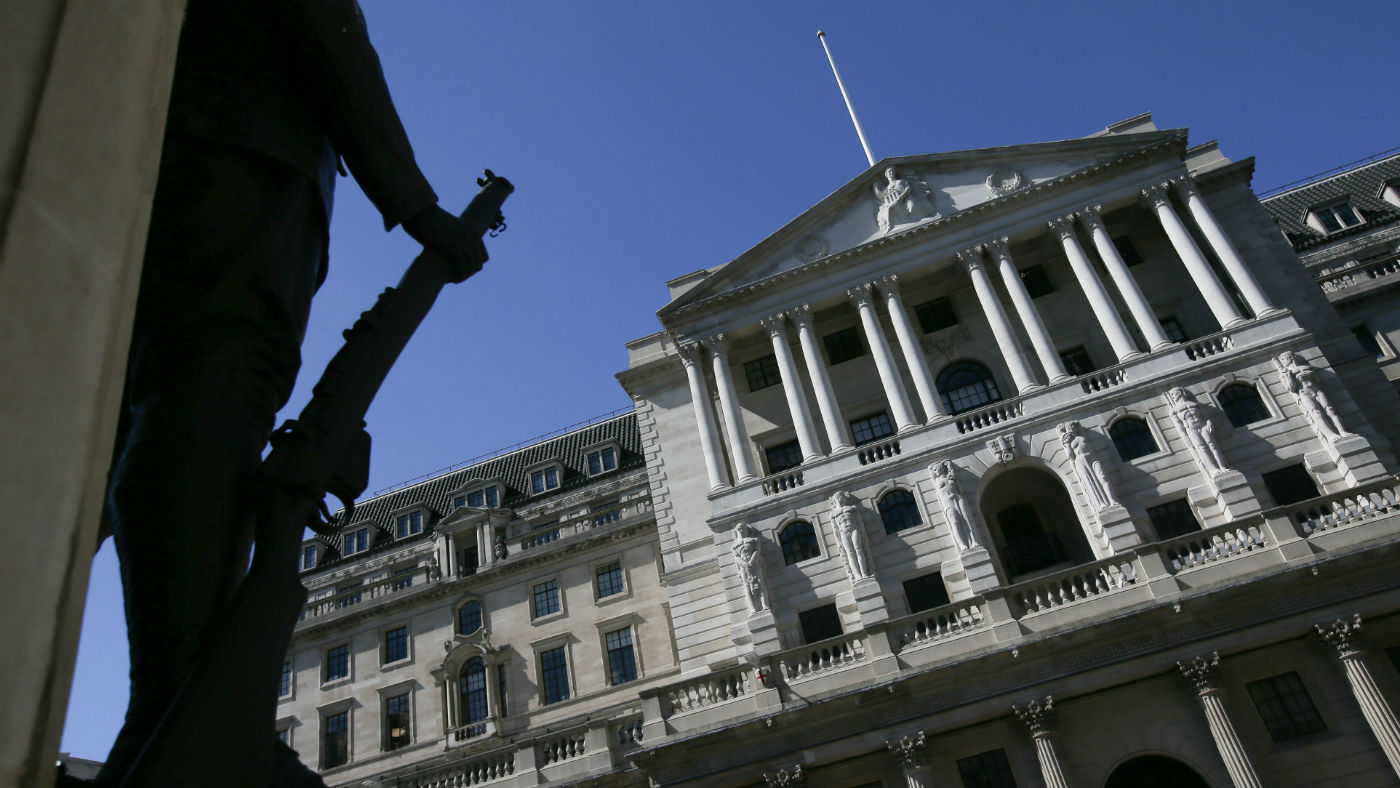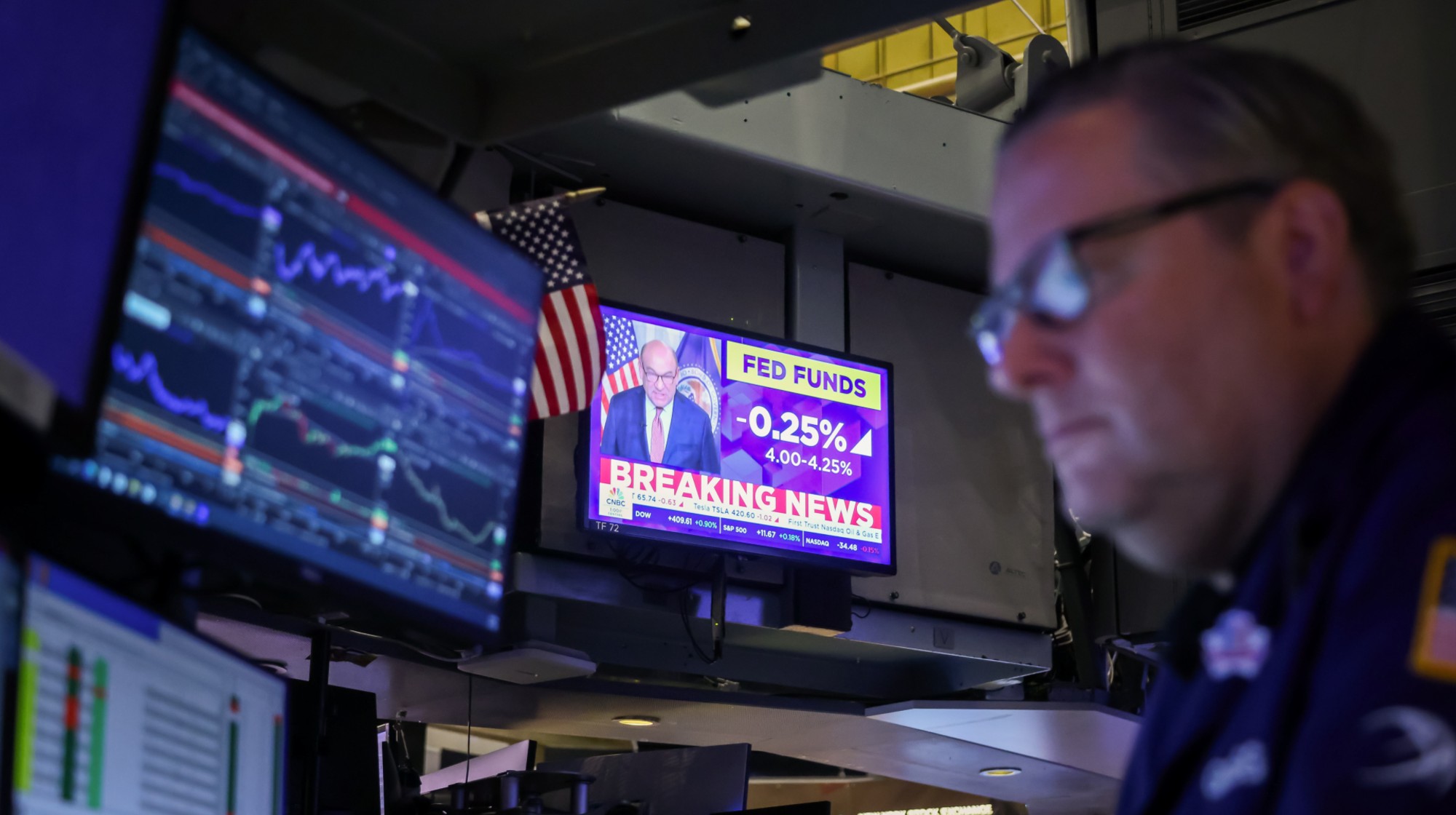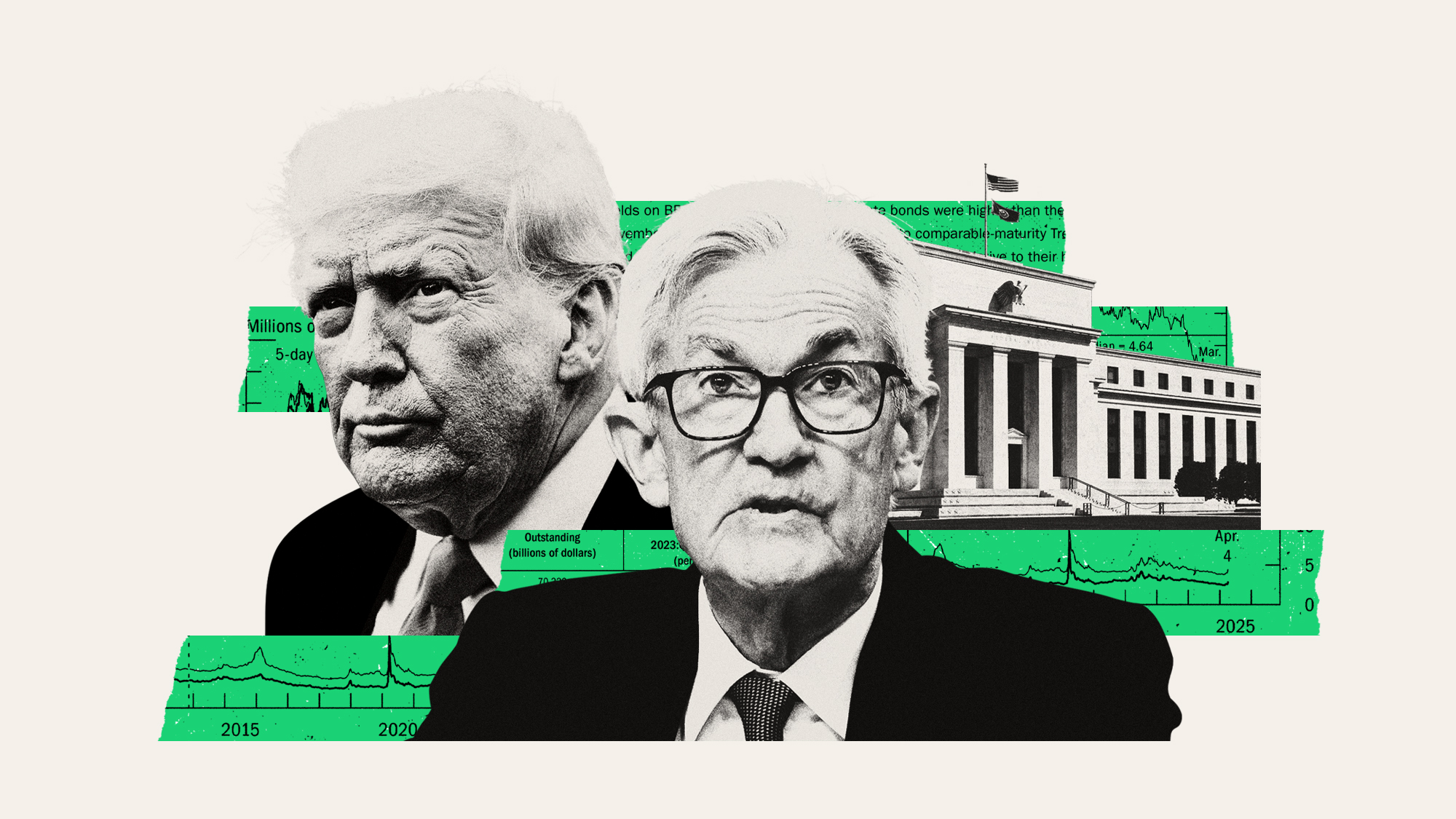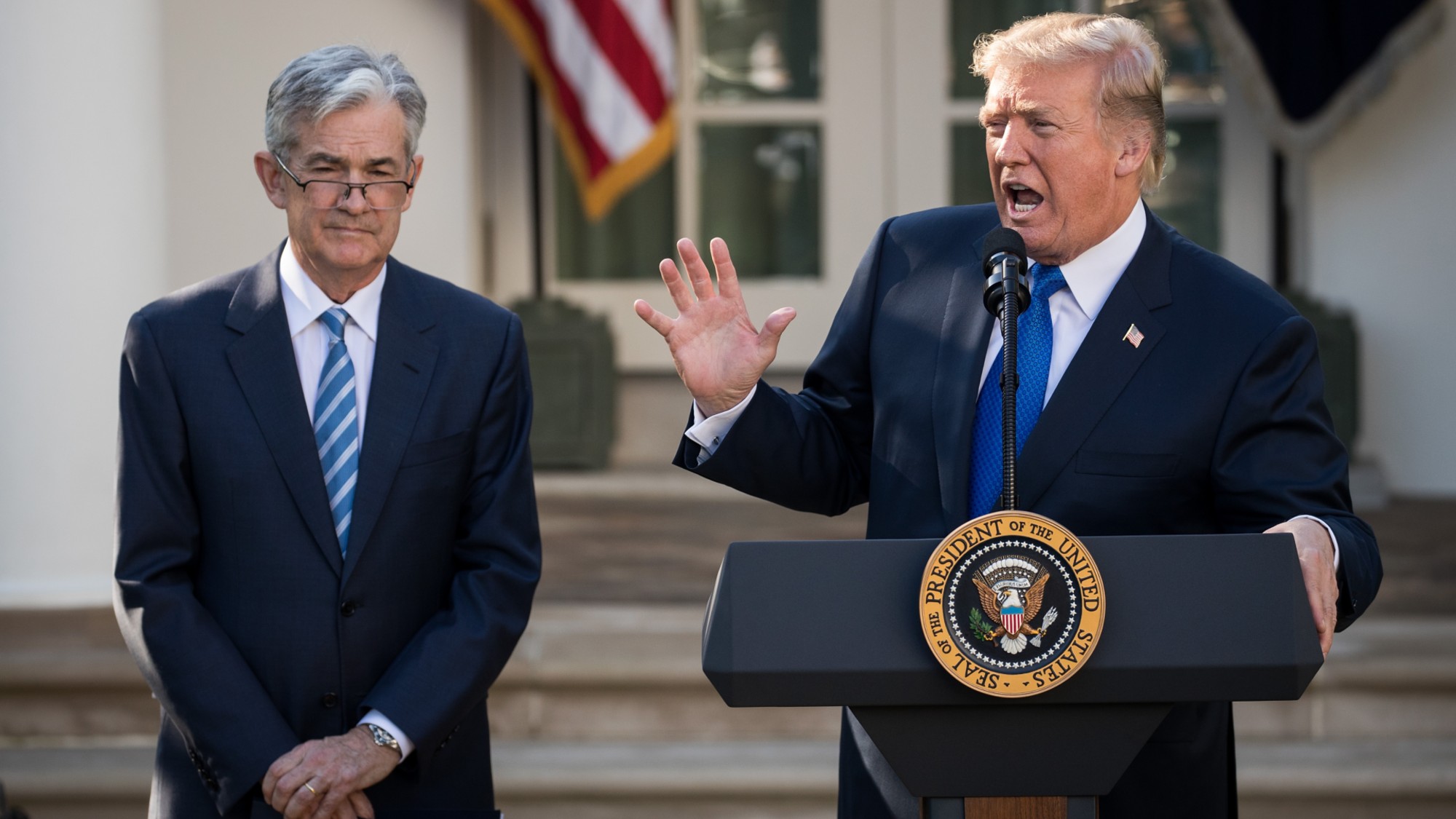Why did Bank of England hold interest rates?
What the move says for next year’s economic prospects

A free daily email with the biggest news stories of the day – and the best features from TheWeek.com
You are now subscribed
Your newsletter sign-up was successful
The Bank of England has voted not to raise interest rates, just hours after the US Federal Reserve’s controversial decision sparked a global market sell-off.
Against a backdrop of weaker global growth, the Bank of England’s powerful nine-member Monetary Policy Committee (MPC) voted unanimously to keep interest rates at 0.75%.
“In the latest from the Bank of England's interest rate setters, it's not what they did that's eye-catching” says BBC economics correspondent Andy Verity, “it's what they said”.
The Week
Escape your echo chamber. Get the facts behind the news, plus analysis from multiple perspectives.

Sign up for The Week's Free Newsletters
From our morning news briefing to a weekly Good News Newsletter, get the best of The Week delivered directly to your inbox.
From our morning news briefing to a weekly Good News Newsletter, get the best of The Week delivered directly to your inbox.
Cutting its growth forecast to 0.2% in the final quarter of 2019, the Bank warned a lack of clarity around Brexit, combined with a slowing global economy and weaker outlook for the eurozone is harming the UK economy.
“Further intensification of Brexit uncertainties, coupled with the slowing global economy, has also weighed on the near-term outlook for UK growth. Business investment has fallen for each of the past three quarters and is likely to remain weak in the near term. The housing market has remained subdued” the MPC said.
“The result is that all businesses currently have to pay more to borrow on international markets, but British companies have seen the biggest rise in costs” says the Daily Telegraph.
This means businesses are investing less, and will continue to do so for months.
A free daily email with the biggest news stories of the day – and the best features from TheWeek.com
Falling oil prices should ease pressures on the cost of living, bringing inflation down below the Bank’s 2% target in January.
“This also removes pressure to raise interest rates” says the Telegraph, though the MPC said more increases were likely over the coming years because low unemployment and rising wages are expected to push prices upwards.
Business Insider says “the timing of any rate hikes remains unclear particularly with the looming spectre of a possible no deal Brexit hanging over the UK”.
Samuel Tombs, chief UK economist at Pantheon Macroeconomics, said he expects the MPC to raise rates by a quarter of a percentage point in May, after the UK formally leaves the EU.
“On balance, we continue to think that the MPC won’t wait for signs of a recovery to emerge in the data and will raise Bank Rate to 1.0% in May, once MPs have signed off a Brexit deal late in [the first quarter of 2019]” he said.
“But a longer delay certainly is possible, given the risk that the article 50 negotiating period might be extended, potentially keeping growth below-trend for longer, and the tail risk of a no-deal Brexit.”
The BoE decision came less than 24 hours after the US Federal Reserve announced it was pressing ahead with its own rate rise, despite pressure from Donald Trump and concerns over the US economy overheating.
That decision, and the Fed’s prediction of two more hikes in 2019, “sparked a wave of selling in the markets”, reports The Guardian.
Japan slumped into bear market territory, as shares dropped across Asia, while in Europe, the FTSE 100 crashed to a 27-month low at the open, with European stocks also hitting their lowest points since late 2016.
Most worryingly, Wall Street is on course for its worst December since the Great Depression after a fourth interest rate rise of 2018 at the US central bank stoked fears that its policymakers are pushing markets to breaking point.
-
 Why are election experts taking Trump’s midterm threats seriously?
Why are election experts taking Trump’s midterm threats seriously?IN THE SPOTLIGHT As the president muses about polling place deployments and a centralized electoral system aimed at one-party control, lawmakers are taking this administration at its word
-
 ‘Restaurateurs have become millionaires’
‘Restaurateurs have become millionaires’Instant Opinion Opinion, comment and editorials of the day
-
 Earth is rapidly approaching a ‘hothouse’ trajectory of warming
Earth is rapidly approaching a ‘hothouse’ trajectory of warmingThe explainer It may become impossible to fix
-
 Powell: The Fed’s last hope?
Powell: The Fed’s last hope?Feature Federal Reserve Chairman Jerome Powell fights back against President Trump's claims
-
 The end for central bank independence?
The end for central bank independence?The Explainer Trump’s war on the US Federal Reserve comes at a moment of global weakening in central bank authority
-
 Who will be the next Fed chair?
Who will be the next Fed chair?Today's Big Question Kevin Hassett appears to be Trump’s pick
-
 Should Labour break manifesto pledge and raise taxes?
Should Labour break manifesto pledge and raise taxes?Today's Big Question There are ‘powerful’ fiscal arguments for an income tax rise but it could mean ‘game over’ for the government
-
 What are stablecoins, and why is the government so interested in them?
What are stablecoins, and why is the government so interested in them?The Explainer With the government backing calls for the regulation of certain cryptocurrencies, are stablecoins the future?
-
 Fed cuts interest rates a quarter point
Fed cuts interest rates a quarter pointSpeed Read ‘The cut suggests a broader shift toward concern about cracks forming in the job market’
-
 Trump's threats to fire Jerome Powell are unsettling the markets
Trump's threats to fire Jerome Powell are unsettling the marketsTalking Points Expect a 'period of volatility' if he follows through
-
 How will Wall Street react to the Trump-Powell showdown?
How will Wall Street react to the Trump-Powell showdown?Today's Big Question 'Market turmoil' seems likely